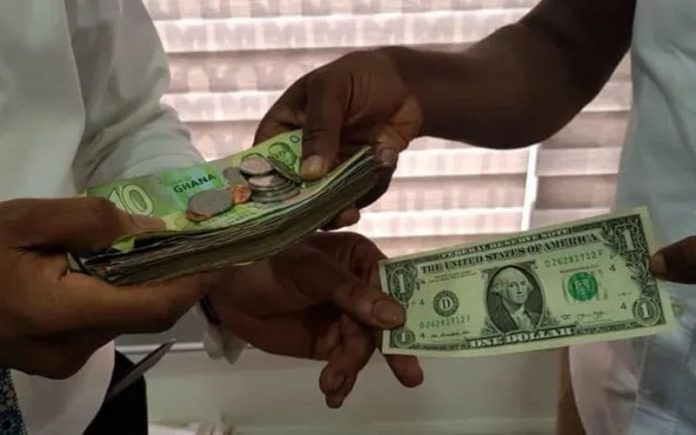As the Bank of Ghana prepares to auction $120 million to Bulk Oil Distribution Companies (BDCs) in the second quarter of 2024, ongoing dollar demand from local businesses, particularly in the energy, pharmaceuticals, traders, and manufacturing sectors, could cause the depreciation of the Ghana cedi to persist this week.
Since the beginning of the year, the cedi has devalued by approximately 10% against the US dollar, and this trend is expected to persist if the pressures driving dollar demand continue.
Ghana is in a big economic quagmire; unstable power supply, partial internet shutdown and on top of the list is a depreciating domestic currency. The West African country has still not been able to find an effective way to deal with its economic crisis, which gained momentum in 2022.
A $3 billion IMF bailout package is expected to wind down the impact on ordinary Ghanaians and give life to key economic indicators. Almost a year after implementing the first phase of the IMF programme, inflation has dropped from a 2022 peak of 54% to 23.5%, signalling a positive outcome.
Beyond inflation, critical indicators such as exchange rate and unemployment have failed to yield the intended outcomes. When Ghana approached the Fund for a bailout after it was kicked out of the international capital market, one key solution the authorities sought was an intervention to clear the dark clouds around its domestic currency, which had lost more than 30% of its value to major trading currencies like the US dollar.
After receiving about $2 billion from the IMF, World Bank and AfDB combined, Accra seems to be returning to its 2022 level, where the cedi was no match for the US ‘greenback’. As the depreciation story continues, it is projected that the recent visit of the IMF Managing Director may help expedite debt rework negotiations between Ghana and its commercial creditors.
One of the country’s main sources of foreign exchange, cocoa, is facing a shortage as Ghana falls short of its targeted yield, leading to gaps in supply and demand. Recent data from the Bank of Ghana reveals that Ghana collected less revenue from cocoa exports in the first two months of 2024 compared to the previous year. Despite the increase in prices, cocoa exports dropped from $711.5 million to $508.4 million during the first two months, resulting in a nearly 29% decrease in foreign exchange earnings from cocoa bean sales.
As cocoa exports fails to come to the ‘forex earning party’, the most viable solution is for Ghana to successfully complete its second IMF program review. This achievement could unlock approximately $360 million in foreign exchange inflows from the Fund alone, in addition to other expected disbursements from the World Bank and the African Development Bank. However, these disbursements are partially dependent on the successful completion of a debt restructuring agreement with commercial creditors.
In total, Ghana is expecting more than $700 million from sources like the IMF, World Bank and the AfDB in 2024, and it is projected that this could avert further depletion of its international reserves, which can only afford less than two months of imports.
In the short run, the Ghanaian authorities are working around the clock to close restructuring talks with its commercial creditors, including Eurobonds, to gain the needed financing assurances for the disbursement of the IMF third tranche expected to hit Bank of Ghana’s account by May 2024. For now, the incoming $300 million budget support from the World Bank looks like the most immediate inflow to stop the cedi from further depreciation.

